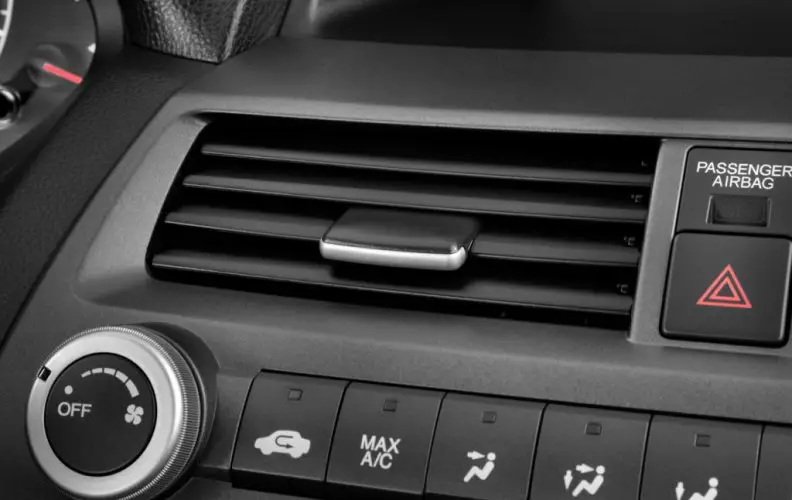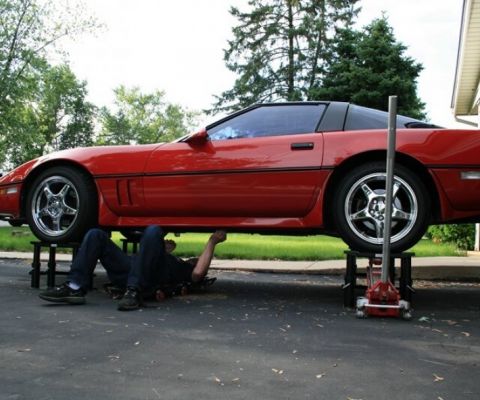Symptoms of a Broken Timing Belt You Shouldn’t Ignore
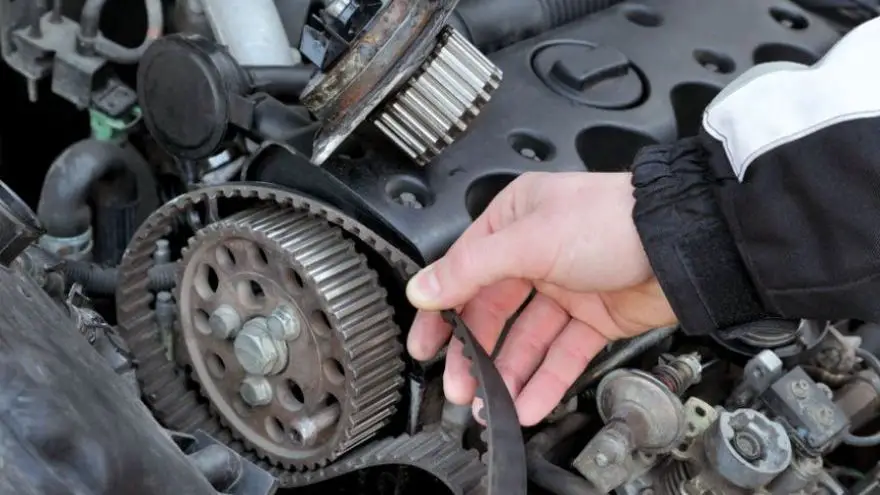 Symptoms of a Broken Timing Belt You Shouldn’t Ignore
drivrzone.com
Symptoms of a Broken Timing Belt You Shouldn’t Ignore
drivrzone.com
We have all been to the mechanic with our vehicle. The problem is always the time to get it in and also the price for labor and parts. Most times, what we bring our vehicle in for is not always the issue we thought it was. Anyone who has been to the mechanic knows that what they tell us is sometimes like a foreign language if you don’t know the engine yourself. One part of our vehicle that we may need to be changed is the timing belt. In this blog, we are going to look at what exactly this is and what broken timing belt signs to look for.
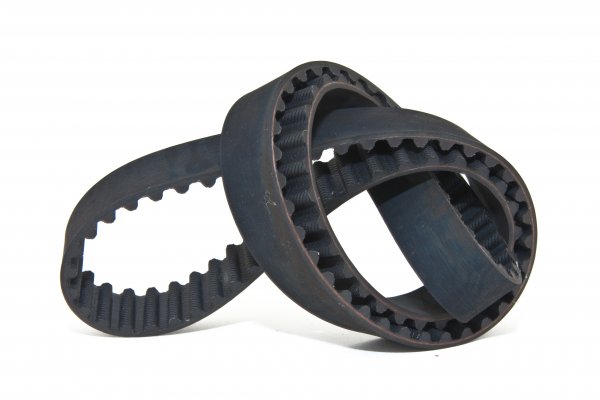
What is a Timing Belt?
To preserve the integrity of a timing belt, it will be made of a nylon-reinforced rubber material that is very strong. This belt when looking in your engine will be towards the front of the vehicle.
This engine component located internally will make sure that each cylinder in your vehicle will fire appropriately. This is done by the rotating of the crankshaft and cam together. The opening and closing of your valves in sync will be forced to move when the pistons fire using the cylinders. Complete engine failure could happen if this process is not perfectly timed out accordingly, and a broken timing belt is a cause.
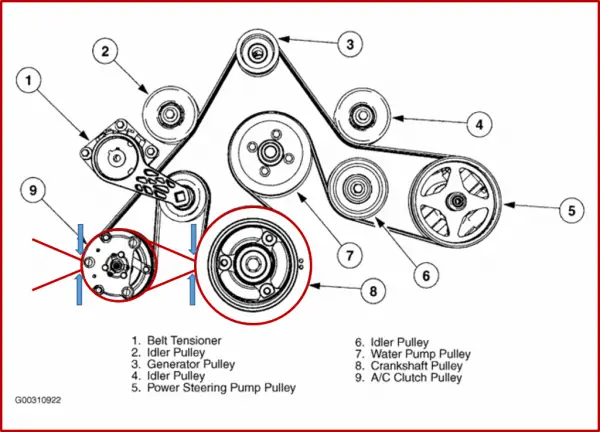
Cars and SUV’s that have smaller size engines will have one of these timing belts, but some may not. In some cases, especially when you get to larger vehicles with bigger engines, will have a timing chain instead. See larger engines have a larger bore and stroke, so replacing the belt with a chain will have a better effect and work the same. Chains will, however, last longer than the belts due to obvious reasons, but will also be considered to last for the lifetime of the vehicle due to its strength.
Since the wear and tear on any vehicle are of concern to any driver, the specific parts of your engine that can be affected by this over time need to be replaced. The timing belt is one of those parts and should be replaced according to your car manufacturer, or on average between every 75,000 to 100,000 miles. Located in your owners manual should be some vital information as well for the changing of your timing belt.
Symptoms of a Broken Timing Belt
Ticking Noise
Ever heard a clock ticking? Well when it comes to your engine, this is the last thing you want to hear. In your engine, there are pistons inside a chamber that has connecting rods to it in which the crank powers. The timing belt will be attached to include a pulley system between the camshaft and engine’s crank. There is a rocker arm assembly and some head valves in which this shaft operates and sends fuel into this chamber to get rid of burned gas by sending it out of your exhaust manifold. If you hear that clock ticking out of your engine, this is one of the signs that your timing belt might be wearing out. This noise will get louder over time and if you wait too long, it could be too late and the belt could come off.
Engine Will Not Turn Over
Normally when starting your car, you turn the key and everything starts up normally. If you turn the key and the starter activates, but not the engine itself, it probably means the timing belt could be broken. Also if when turning the key, you hear a loud crack or snap noise, it could mean that the belt broke off. If this happens, your engine is not going to start and if this happens while driving because you missed the signs, it could result in compartment damage internally in your engine. These belts are notorious for breaking while your engine is running, but if your lucky this won’t happen to you while your driving, and it will happen prior to you leaving.
Engine Misfires
If you want to avoid some major catastrophic engine damage, you will want to listen for your engine not firing on all cylinders. This happens when the timing belt is getting worn and instead of attaching to the camshaft properly, it will start to slip. This will cause the pulley system that is in place to work the crank and camshaft to not open and close the cylinders properly. If the belt starts to slip while working the camshaft drive, you will hear the slipping when the engine is revved up or stepping on the gas.
Oil Leaking
Oil leaks can mean a multitude of things and also can have many places it can be leaking from. Any oil leaking from the timing belt cover will mean that there is a potential of your timing belt wearing too soon. The cover is secured by a bunch of bolts and nuts that could potentially come loose. Over time, the cover can wear out, be cracked, pinched or even if it is installed wrong, this could cause the oil leak. Leaking oil from the cover will commonly result in the engine overheating. If you have an engine failure because of no oil, this will cause having to rebuild the entire motor instead of a quick fix. 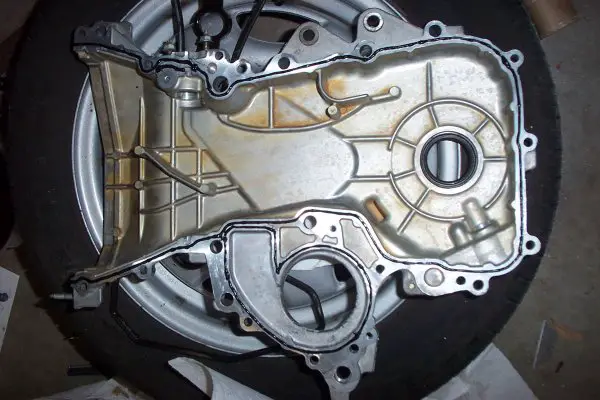
Smoke from Engine
During the winter months, we all see the smoke coming from the tailpipes of vehicles. The problem some may have is to determine if it is steam or water vapor. If you are noticing that too much smoke is coming out, even for the wintertime, it could be a timing belt problem. If your timing belt gets worn out, the succession of movement within the cylinders will be fractured. This will, in turn, cause the exhaust to let air in and out at the wrong times, and will then release a ton of smoke to escape from your exhaust system.
Engine Issues
There are rubber teeth or in some cases, metal teeth that the timing belt is made of that will fit into the gears in your crankshaft. The teeth over time can become worn out, or nubbed, which will result in your RPM’s at a higher rate have issues gripping gears. If you notice that your vehicle is acting weird above 2000 RPMs, it may be a sign that the timing belt has lost teeth or they are worn and in which case, your engine’s entire performance could be affected drastically. While switching gears, if you notice that the engine is giving your problems, whether it be shaking, or missing, you might have an issue with the timing belt.
Cost and Replacement Process
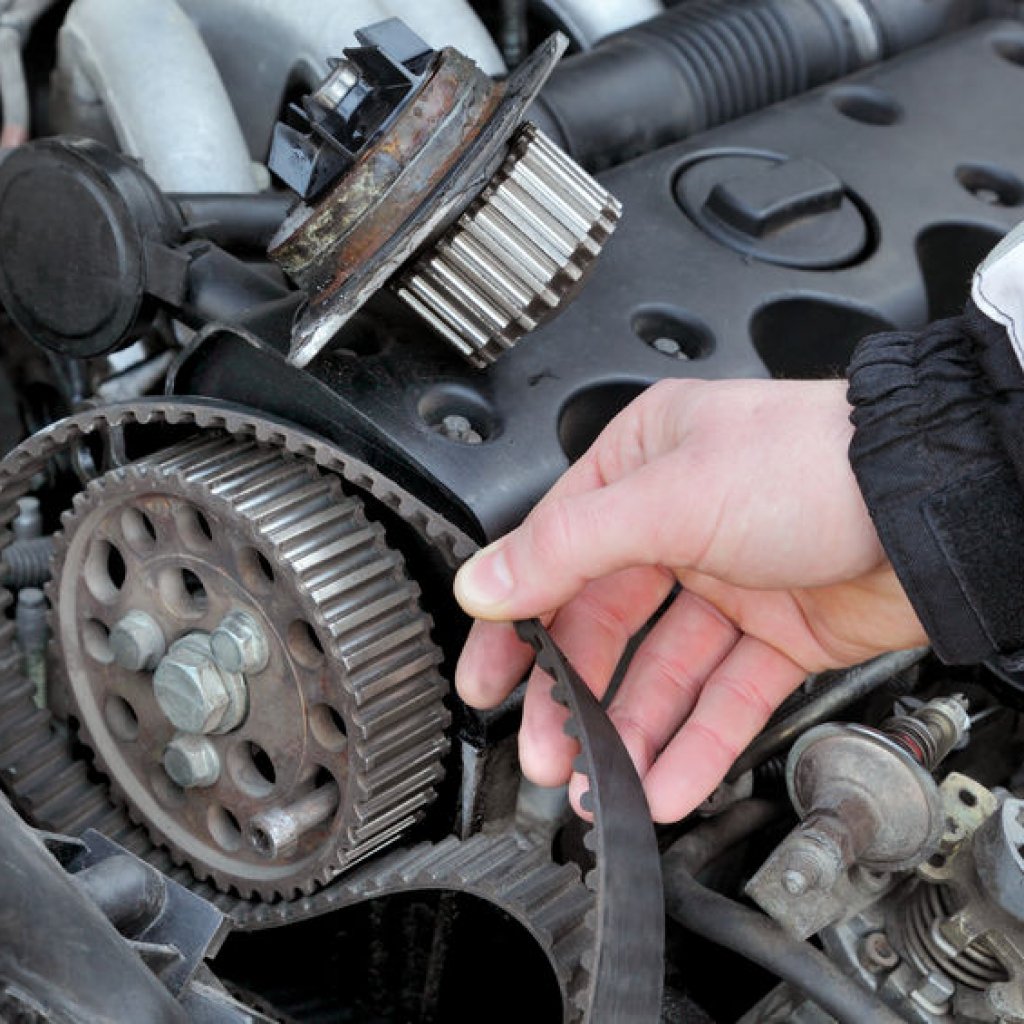
A professional should replace or check a timing belt. The cost of labor and parts will be anywhere from $250 and up. The reason that this is so expensive will depend on where and how the belt is in your engine. Some engines will require other pieces and parts to be moved to get to your belt. If they notice when checking your belt that other components need to be switched out, like the pulleys or tensioners, then they will do this for the new belt to work properly and not fall apart sooner. Depending on the size of your vehicle, will also determine the cost of the repair, because bigger engines will probably need more parts to disassemble.
Sources
- Fix – Symptoms of a Failing Timing Belt
- Car Treatments – Timing Belt symptoms and replacement cost
- My Car Needs A – The Symptoms of a Broken Timing Belt
- Your Mechanic – Symptoms of a Bad or Failing Timing Belt







